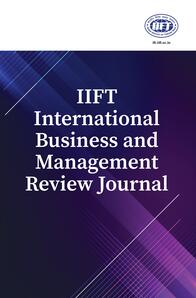
1 Indian Institute of Foreign Trade, New Delhi, Delhi, India
Creative Commons Non Commercial CC BY-NC: This article is distributed under the terms of the Creative Commons Attribution-NonCommercial 4.0 License (http://www.creativecommons.org/licenses/by-nc/4.0/) which permits non-Commercial use, reproduction and distribution of the work without further permission provided the original work is attributed.
Financial inclusion is a goal vigorously followed by all governments the world over. Nowadays, due to technological progress, the interplay of technology with the provision of financial services is increasingly becoming quite common and yielding the desired results. The Indian technology landscape has moved fast facilitated by a huge amount of public investment. The ‘Unified Payments Interface (UPI) moment’ has become a cliché in financial circles. From the UPI moment in payments, we are now experiencing high growth in lending and insurance. Partnerships between legacy insurers and InsurTech and e-commerce platforms/networks are leading to new competencies and new, innovative insurance products. The study suggests that embedded, personalised and customised insurance products must be experimented with and introduced in government marketplaces which attract many small buyers and suppliers.
Embedded insurance, technological progress, new partnerships, personalisation and customization
Aduda, J., & Kalunda, E. (2012). Financial inclusion and financial sector stability with reference to Kenya: A review of literature. Journal of Applied Finance and Banking, 2(6), 95.
Agarwal, S., Qian, W., & Tan, R. (2020). Financial inclusion and financial technology. In Household finance: A functional approach (pp. 307–346). Springer.
Al-Mudimigh, A., & Anshari, M. (2020). Financial technology and innovative financial inclusion. Financial technology and disruptive innovation in ASEAN (pp. 119–129). IGI Global.
Bansal, S. (2014). Perspective of technology in achieving financial inclusion in rural India. Procedia Economics and Finance, 11, 472–480. https://doi.org/10.1016/S2212-5671(14)00213-5
Barry, M. S., & Creti, A. (2020). Pay-as-you-go contracts for electricity access: Bridging the ‘last mile’ gap? A case study in Benin. Energy Economics, 90, 104843. https://doi.org/10.1016/j.eneco.2020.104843
Didenko, I. V., & Sidelnyk, K. (2021). Insurance innovations as a part of the financial inclusion. ARMG Publishing.
India Brand Equity Foundation. (6 October 2021). https://www.ibef.org/blogs/opportunity-for-fintech-in-the-indian-insurance-industry
Izaguirre, J. C., Lyman, T., McGuire, C., & Grace, D. (2016). Deposit insurance and digital financial inclusion. CGAP.
Litman, T. (2005). Pay-as-you-drive pricing and insurance regulatory objectives. Journal of Insurance Regulation, 23(3).
Muneeza, A., Arshad, N. A., & Arifin, A. T. (2018). The application of blockchain technology in crowdfunding: Towards financial inclusion via technology. International Journal of Management and Applied Research, 5(2), 82–98. https://doi.org/10.18646/2056.52.18-007
Ozili, P. K. (2022). Can central bank digital currency increase financial inclusion? Arguments for and against. SSRN Electronic Journal, 241–249. https://doi.org/10.2139/ssrn.3963041
Schuetz, S., & Venkatesh, V. (2020). Blockchain, adoption, and financial inclusion in India: Research opportunities. International Journal of Information Management, 52, 101936. https://doi.org/10.1016/j.ijinfomgt.2019.04.009
Singh, A. (2017).Role of technology in financial inclusion. International Journal of Business and General Management, 6(5), 1–6. https://www.finextra.com/blogposting/22246/how-embedded-finance-and-baas-are-transforming-india